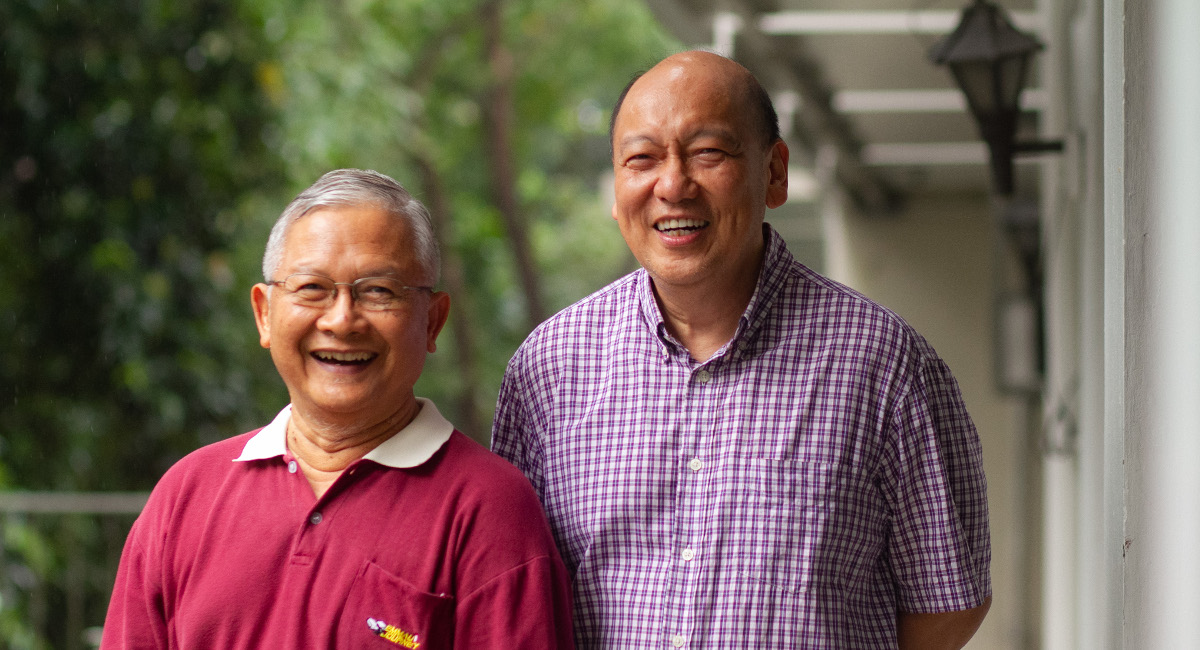
The Asia Pacific Tertianship 2018-2019 is well into its second month with eight Jesuits from Croatia, Haiti, Indonesia, Japan, Kenya/Eastern Africa, Philippines, and Vietnam. For six months, they immerse in this period of formation which is the final probation into what St. Ignatius called “the school of the heart”. This is when the question Who exactly are we? seeks an answer.
The co-directors of the programme, Fr Ramon Bautista and Fr Priyono Marwan, both have lengthy experience in formation.
“My very first assignment was at San Jose (Seminary). Then from there, I was assigned to Mindanao. I was there on the third year of St John Vianney Seminary. It started in 1985 up to now,” shared Fr Bautista.
For him, the years in formation work needed patience and acceptance. “Vocation is sacred. You cannot just dismiss a person. I cannot say ‘I don’t think you have a vocation’. Of course, I have done that. But it’s one of the most difficult tasks to do. You need to gather data, and you need to reach a moral certitude–as opposed to scientific certitude–to say that this person has no vocation. Even before you reach that point, there is a lot of gathering of data, trying to know the person, trying to know his background, journeying with that person, walking with that person. It takes so much time.”

Fr Bautista reflected on the journey: “When you see them ordained, and when you see them blooming, as it were… it’s a very privileged kind of work. Many times, they do not only share their blessings, they share their struggles. And it’s a different kind of consolation, when people open up their woundedness, their brokenness. It’s a healing ministry. Part of the formation is that they undergo so much healing. That’s why so much a part of formation is psychological and emotional processing.”
For Fr Marwan–who has worked extensively in the field of psychology–the assignment of work in tertianship formation has lasted nine years. “In the beginning, right after my study, I was assigned to be the master of the regents. At that time, in the (Indonesian) province, there were around 30 regents and I was there for maybe four or five years. The second part was when I was assigned at Arrupe International Residence as the director of the juniorate programme, an international programme. It was for two years. This one is my third assignment in formation.”

Fr Marwan’s prescription for tertians is simple. “Now is a time for rest. Provide yourself with space and time to process. And then certainly, after some good rest, do some reading about our way of life. After the readings, reflect. Under the light of the readings–from the life of St Ignatius, to the more recent documents of the Society–get inspired. Some of them say ‘I am not only reflecting on the readings, but I’m re-rooting myself, re-discovering myself.’ (Another) R is reconciliation. This is a kind of integration: integration with yourself, to the Society of Jesus, to the Church, and to the world. Because we are coming to the world, we are not escaping.”
“We give them that space. Little formation would take place if there isn’t sufficient space. It’s a relaxing pace, that’s why we use the word rhythm,” Fr Bautista added.
The Tertians are now approaching the heart of the tertianship. “The high point is the 30 Day Retreat,” said Fr Bautista. “We Jesuits do it at least twice in our lifetime. The first time is in the first year of novitiate. It’s so different. I did it when I was 21 or 22, I was a novice with very limited experience. They say it’s good to have five or six years of ministry first and then you join the tertianship. You bring your experience,” he shared. “It’s a renewal and as Priyono would say, reconciliation. Even if the person is not having a serious crisis, the time for tertianship is a time for renewal and reconciliation. This is a time to bring in one’s issues, struggles and clarification.”
Fr Marwan’s take is holistic: “My feeling would say that by entering into tertianship, you provide yourself with a lot of space to look at yourself. Look at it in a more complete way, more integrated. Not just in the dimension of psychology or anthropology or spirituality or biology, but trying to see it as a whole as a man of faith and religion. It’s a very privileged time and place that you are able to see yourself clearly, deeply, intimately.”
During this special time of grace, Fr Bautista pointed out: “A positive disposition is crucial. And also a sense of openness”. Fr Marwan added: “Bring your big heart. Generosity, in the sense of bringing your great desire, bringing your willingness to help others and to be changed.”
Photos by Harry Setianto Sunaryo SJ

